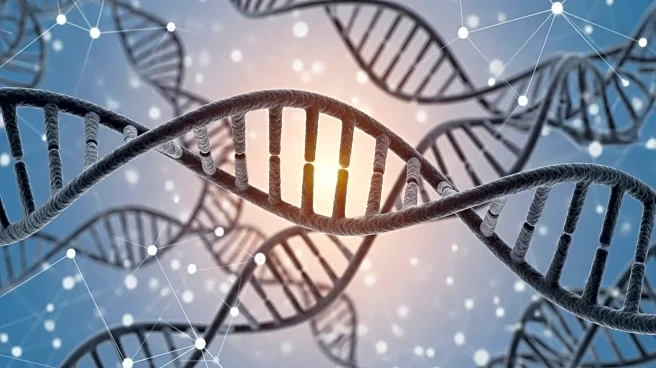What's Happening?
Researchers have created the largest genetic map of human metabolism, revealing new insights into the role of metabolites in health and disease. The study, published in Nature Genetics, utilized data from approximately 450,000 individuals through the UK Biobank. The team examined the genetic regulation of circulating small molecules and lipoprotein characteristics, identifying 29,824 locus-metabolite associations mapping to 753 regions. This research provides a blueprint for further studies on the genetic control of metabolism and its implications for disease risk.
Why It's Important?
The creation of this genetic map is significant as it enhances the understanding of how genetic variations influence metabolism and disease predisposition. By identifying genes that contribute to metabolic variability, researchers can develop targeted therapies for metabolic disorders and improve disease prevention strategies. This study also highlights the potential for personalized medicine, where treatments are tailored based on an individual's genetic makeup. The findings could lead to advancements in drug development and public health initiatives aimed at reducing the prevalence of metabolic diseases.
What's Next?
Future research will likely focus on exploring the specific genes identified in the study and their roles in metabolism and disease. Scientists may conduct further analyses to understand the interactions between genetic variations and environmental factors that affect metabolic health. This could lead to the development of new diagnostic tools and therapeutic approaches for metabolic disorders. Additionally, the study's findings may encourage the establishment of more biobanks worldwide, facilitating large-scale genetic research and collaboration across different populations.
Beyond the Headlines
The genetic map of human metabolism underscores the importance of biobanks in advancing scientific research and understanding complex biological processes. It highlights the potential for international collaboration in genetic studies, which can lead to more comprehensive insights into human health. The study also raises ethical considerations regarding the use of genetic data and the need for policies that ensure privacy and equitable access to research benefits. As genetic research continues to evolve, it will be crucial to address these issues to maximize the positive impact on society.












